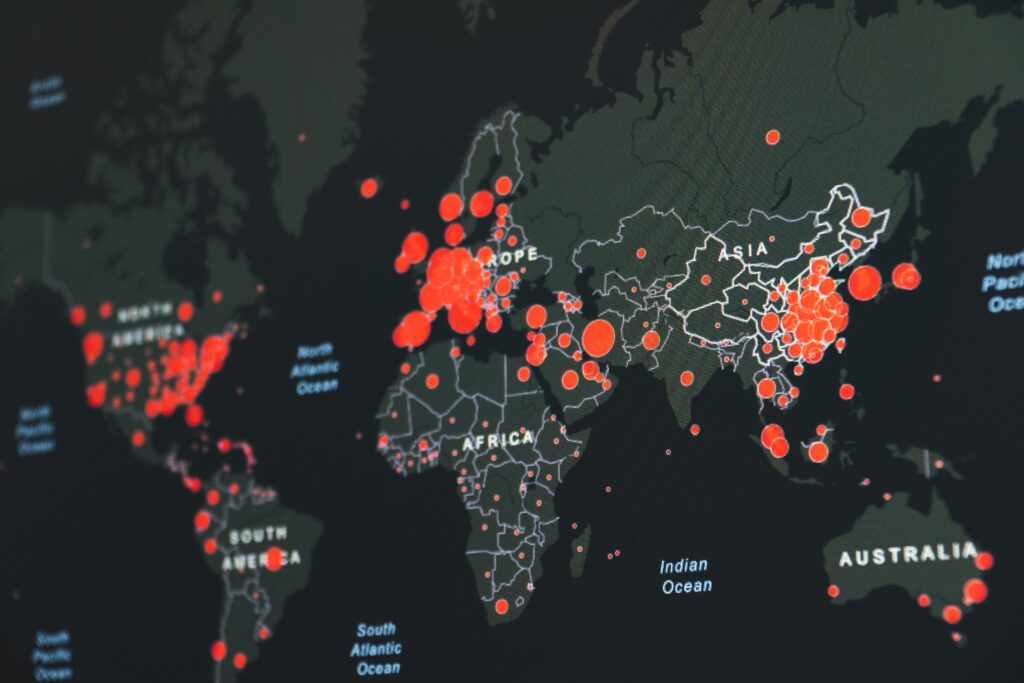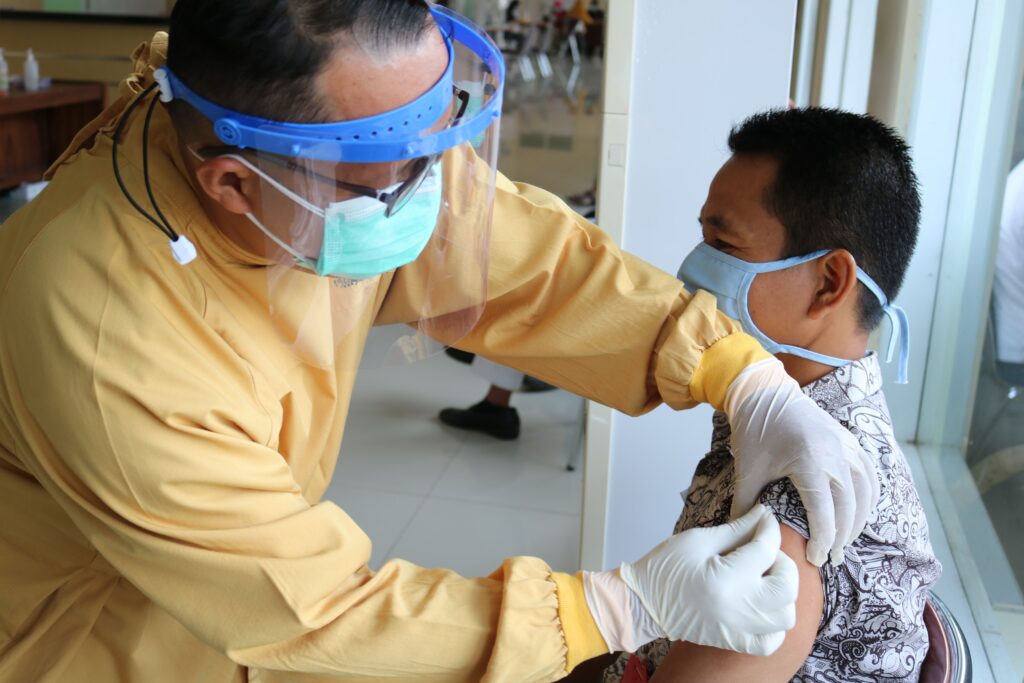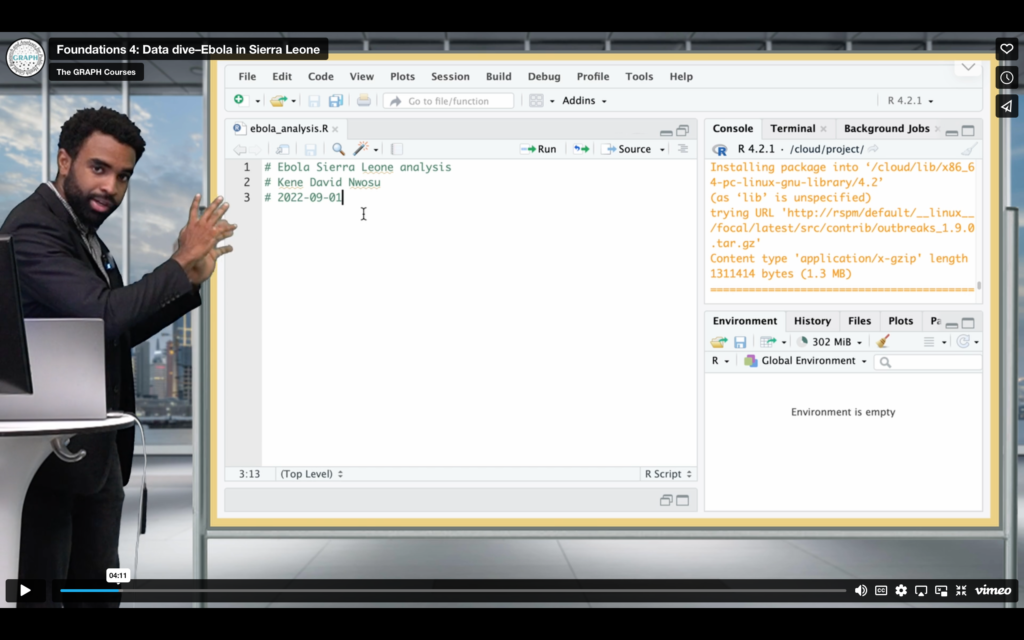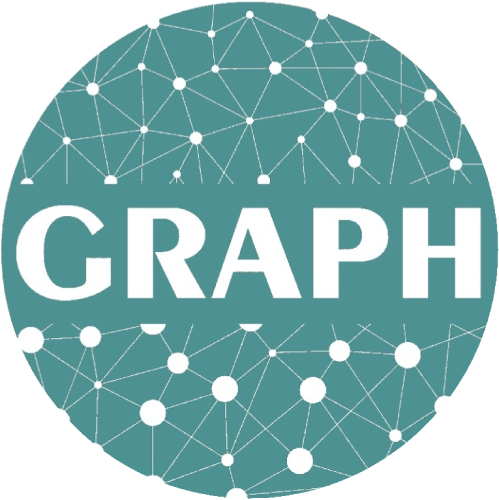The GRAPH Network: who we are and what we do

Campus Biotech is a landmark-worthy complex of modern “all-glass-and-steel” buildings located in the heart of Geneva. Formerly the headquarters of a pharmaceutical company, Campus Biotech now hosts a range of innovative scientific hubs and institutions associated with EPFL, the University of Geneva, and private foundations alike. It is here, in a humble red-brick building of the Faculty of Medicine, where the GRAPH Network came to life.
What is GRAPH
GRAPH stands for Global Research and Analyses for Public Health and it’s an interdisciplinary and multi-cultural network founded by scientists from various backgrounds (epidemiologists, statisticians, data analysts, programmers, medical doctors, and social scientists), who came together early during the Covid-19 pandemic to confront the challenges of accurate and timely infectious disease surveillance, data analysis and data-driven policymaking.
How it started
At the height of the Covid-19 pandemic in 2020, many countries were faced with unprecedented challenges: how to make use of an enormous influx of data on positive test rates, mortality, hospitalizations, or case counts?
What tools to use for effective data analysis around the globe and how to draw actionable conclusions to curb the spread of the disease and mitigate its impact on civil society?
Many ministries of health turned to WHO for help with health data analysis and recommendations to improve crisis response. In turn, WHO reached out to consultants who would be willing to assist in this effort. They also contacted Olivia Keiser, the head of the infectious disease and mathematical modelling division at the Institute of Global Health in Geneva.
The Network

Professor Keiser quickly agreed to help and in turn reached out to colleagues to seek support. Finally, a network of over 60 contributors from 24 countries representing governmental organizations, NGOs, and academia, was created. A systematic approach to data processing (from cleaning to generating country-specific markdown scripts and social and economic analyses) was established. Thanks to the network’s efficiency, dashboards, comprehensive reports and actionable slides were timely produced. The final country reports contained not only analyses and interpretations of the local spread of Covid-19 but also recommendations for culturally sensitive control measures to mitigate the spread of the disease.
Moving from crisis response to epidemiological resilience
The Covid-19 crisis made it strikingly obvious that many countries and organizations did not have enough qualified data scientists to quickly and effectively process and analyze large quantities of data. On top of it, ministries of health worldwide struggled to draw actionable conclusions from the data they were collecting. Such problems were especially prevalent in low and middle-income settings, exposing already vulnerable communities to further hardships. It soon became clear to global health leaders that building epidemiological resilience must come to the fore in the post-pandemic world. Hence, the GRAPH Network members decided to utilize the knowledge, experience, and tools developed during the crisis to support building sustainable procedures for an epidemiological response. We targeted the root of the problem: a dire lack of qualified data scientists on the ground and decided to develop free, state-of-the-art online training courses in epidemiological data analyses.

Identifying the bottlenecks
While many African countries take leaps in enabling general access to technologies and a broadband internet connection, there are other factors at play obstructing people’s access to high-quality education.
A qualitative evaluation among students from LMICs revealed, that while many young people engaged in academic and governmental projects are interested in pursuing a career in data analytics and public health, they face three core challenges discouraging them from following through.
The first was the high cost of certification programs in reputable institutions. Whilst many universities offer free online courses in programming in data analysis, the majority require substantial fees for issuing an accreditation. The second was having little to no chance for working with real-life data sets and developing practical skills. The third challenge had to do with no access to a community of like-minded people to reach out for help and information about data analysis. Lack of personal communication with experts in the field discouraged many students from pursuing courses in data analysis.
Open-access courses in epidemiological data analysis
The GRAPH Network decided to address these bottlenecks by improving access to high-quality, creditable, and yet affordable courses in public health data analysis: the GRAPH courses. To do so, the network created free, open-enrollment online courses aimed at building foundations in R programming, one of the core programming languages used for data analysis. R has many advantages over other languages: it’s free, fairly simple to learn, and it produces good-quality data visualizations and representations which, at the same time, are easy to analyze. The courses focus exclusively on epidemiological data analysis and use real-life datasets. With the support of a seed grant from WHO, the network developed five high-quality courses: the core three focused on an introduction to R, data wrangling, and visualization are available online for free. Further one focused on GIS is in the final stages of production.

Currently, the network is collecting material to expand its course offer, both in terms of subjects and learning models. A premium guided cohort model, with community-based learning, weekly lessons, and personal support is scheduled to launch soon (GET UPDATES). The Network is currently looking for sponsors, who would be able to provide scholarships for students from developing countries.
Sponsor our students!
The Network can also develop bespoke courses in collaboration with ministries of health and other institutions. They are aimed to support researchers, managers, decision- and policymakers in LMICs.
The way forward
GRAPH Network came to life as an impromptu project whose goal was to provide professional assistance in times of global health and humanitarian crisis. As it turns out, competencies and services provided by GRAPH members are needed on a long-term basis.
Our goal is to build firm foundations for effective global disease surveillance by providing state-of-the-art education. We want to keep expanding our offer of free and guided courses and provide assistance in building country-specific educational models, supporting governmental, philanthropic and private sectors alike.


